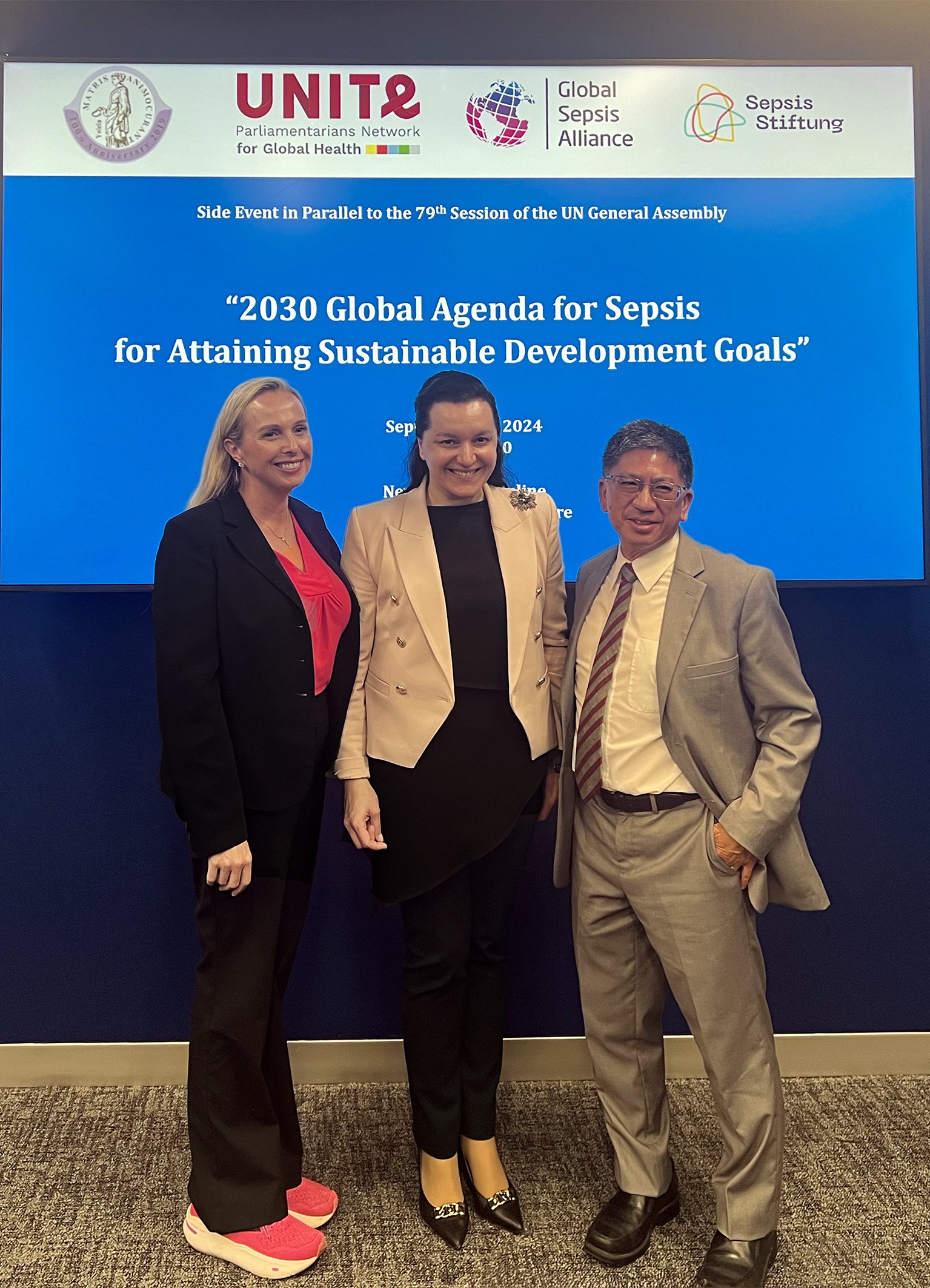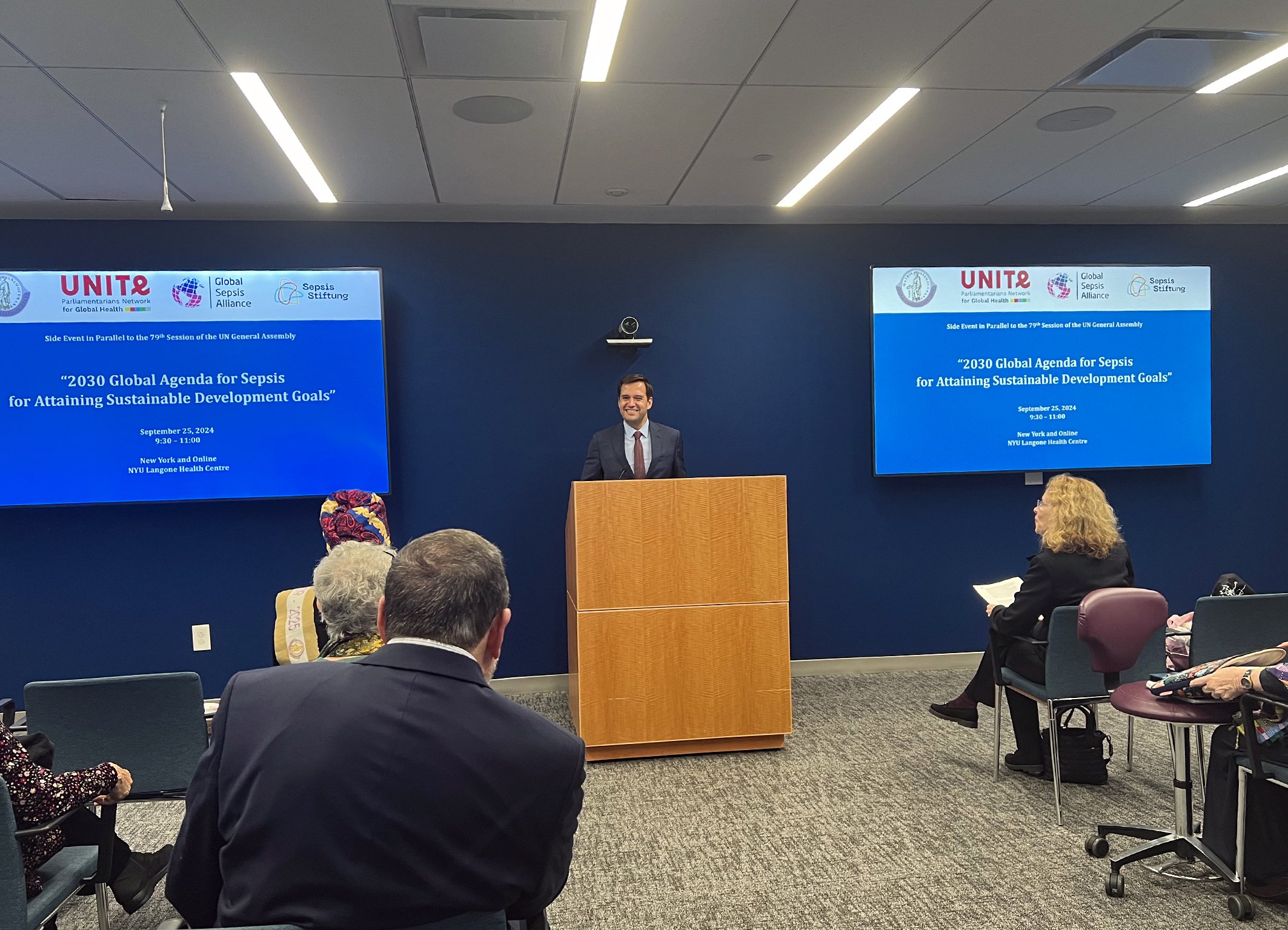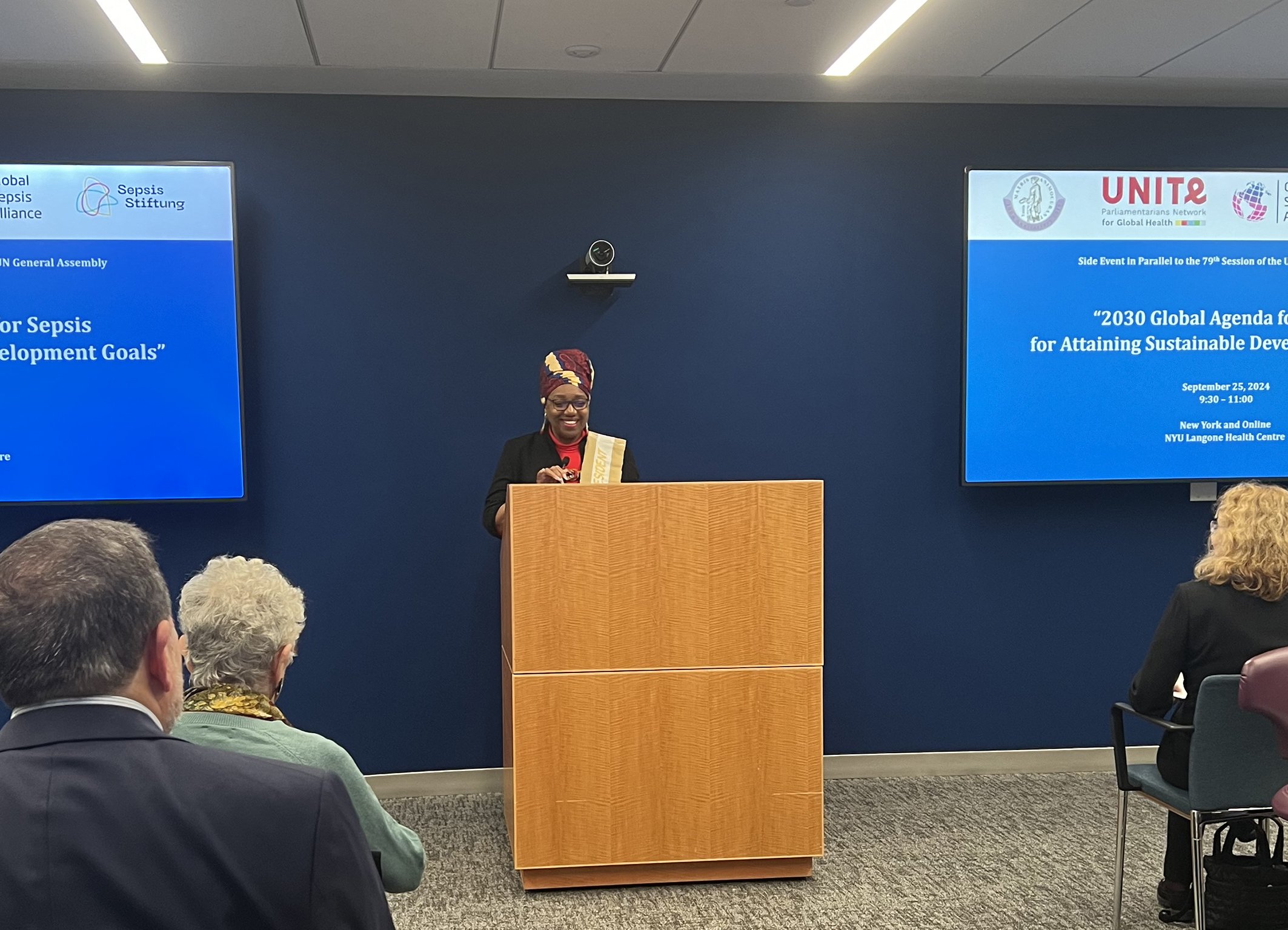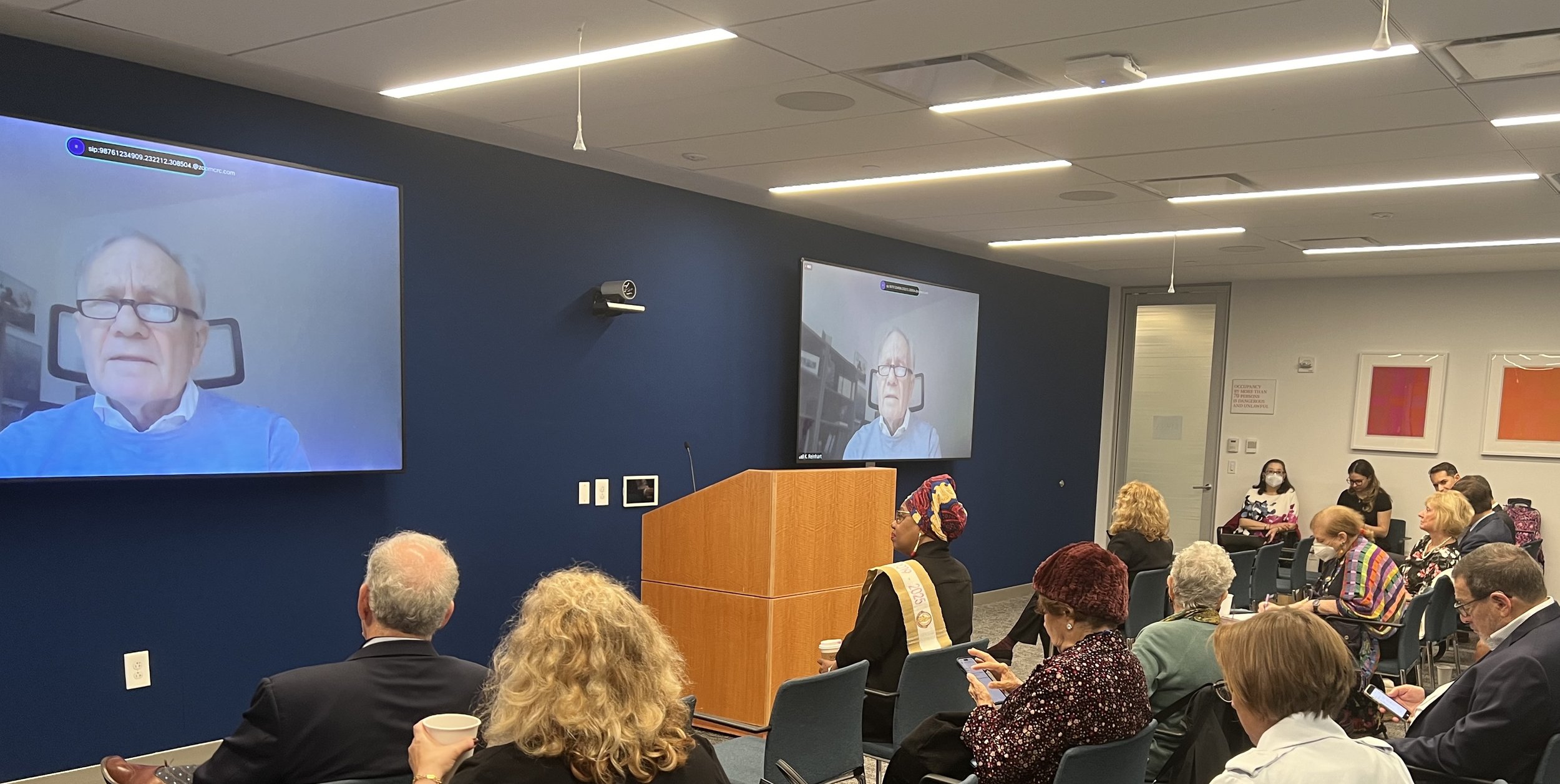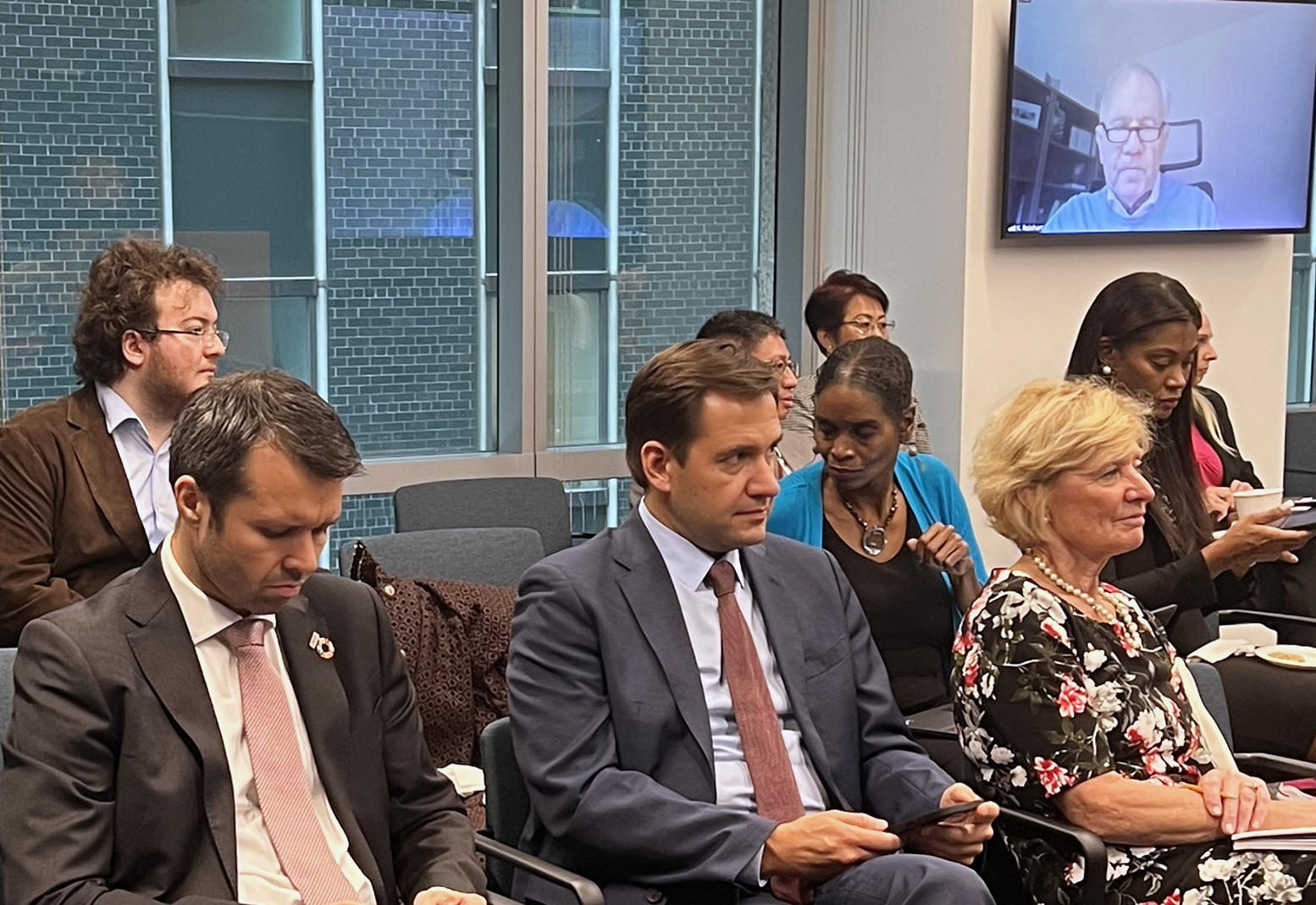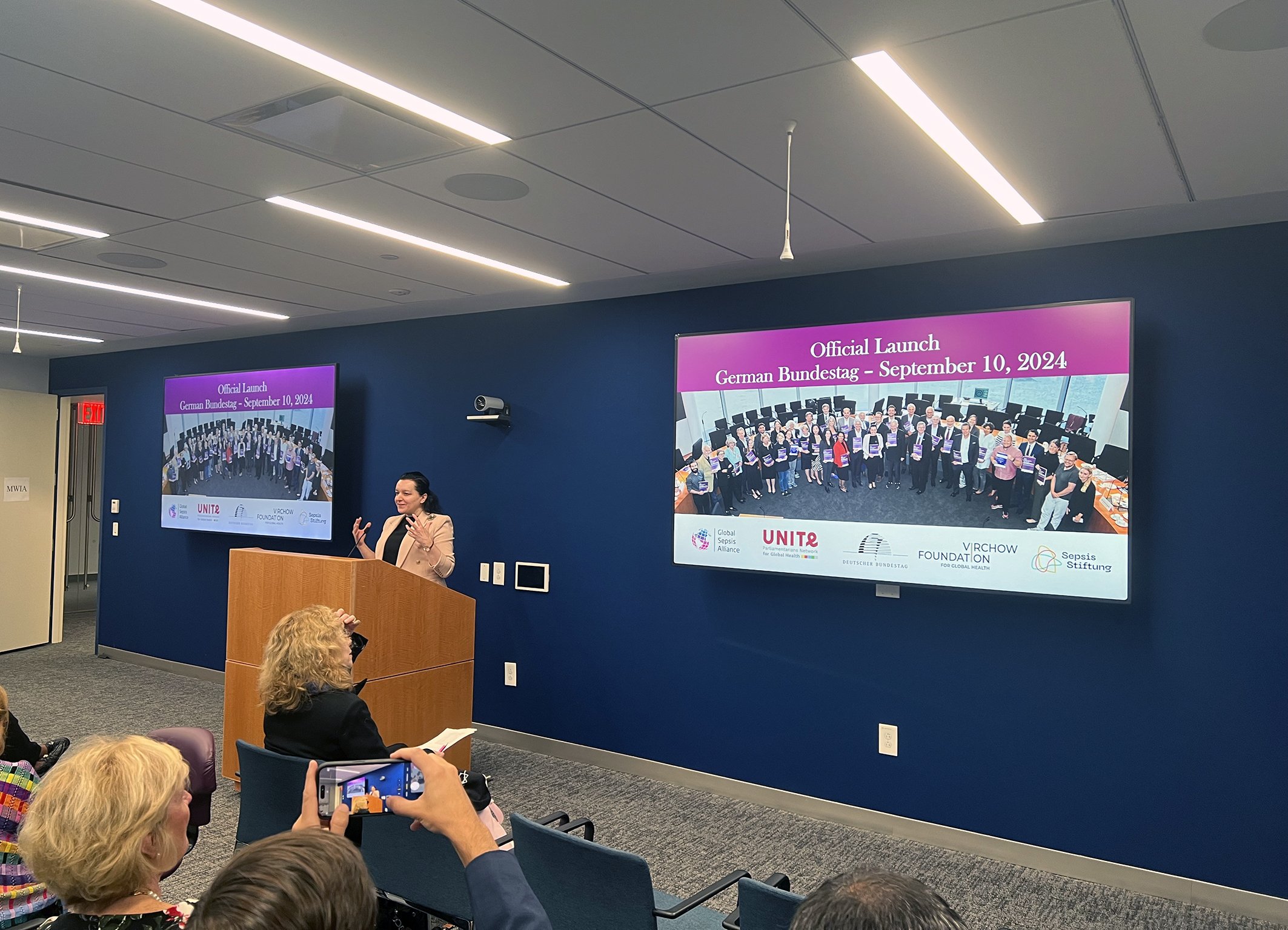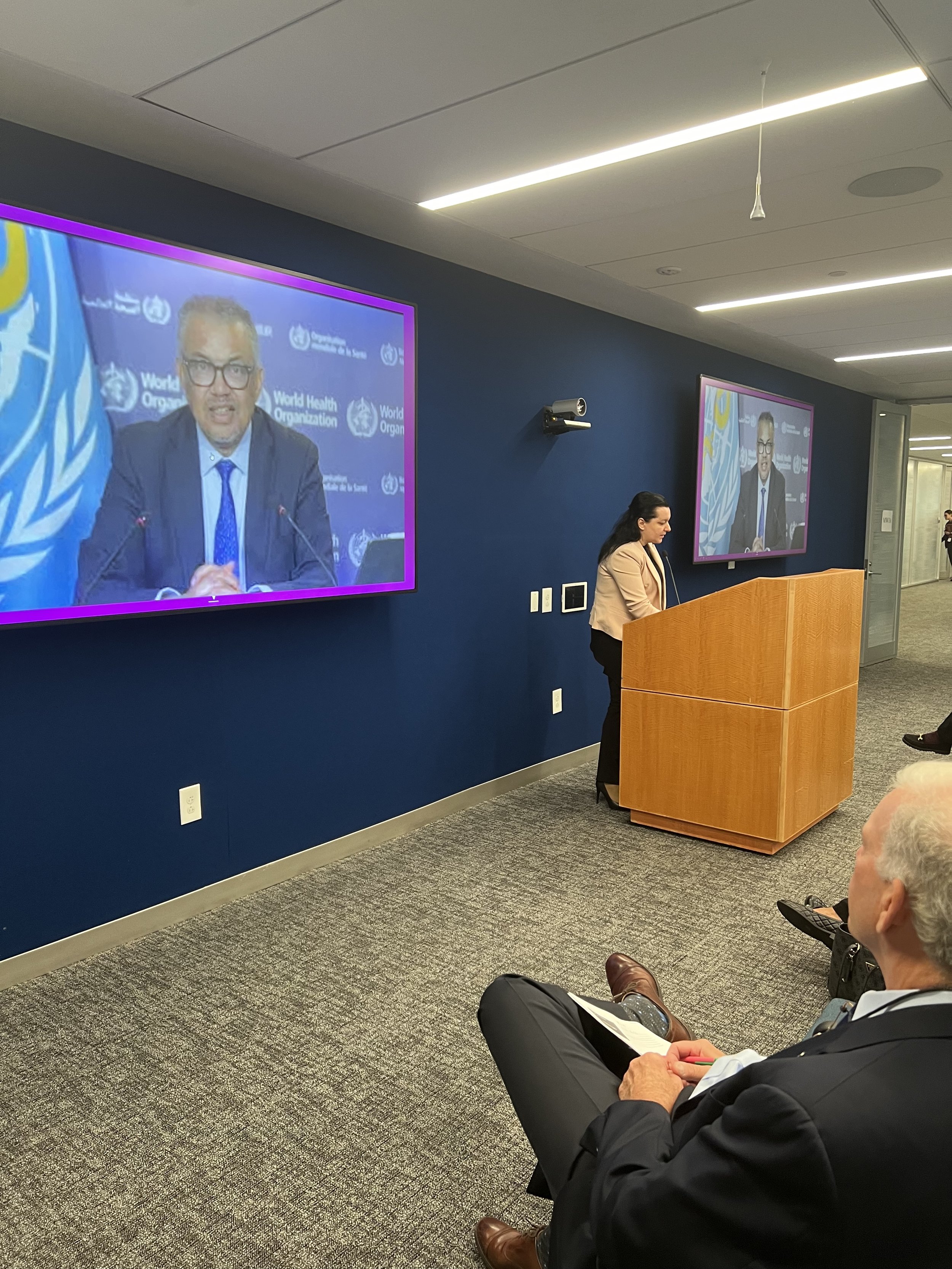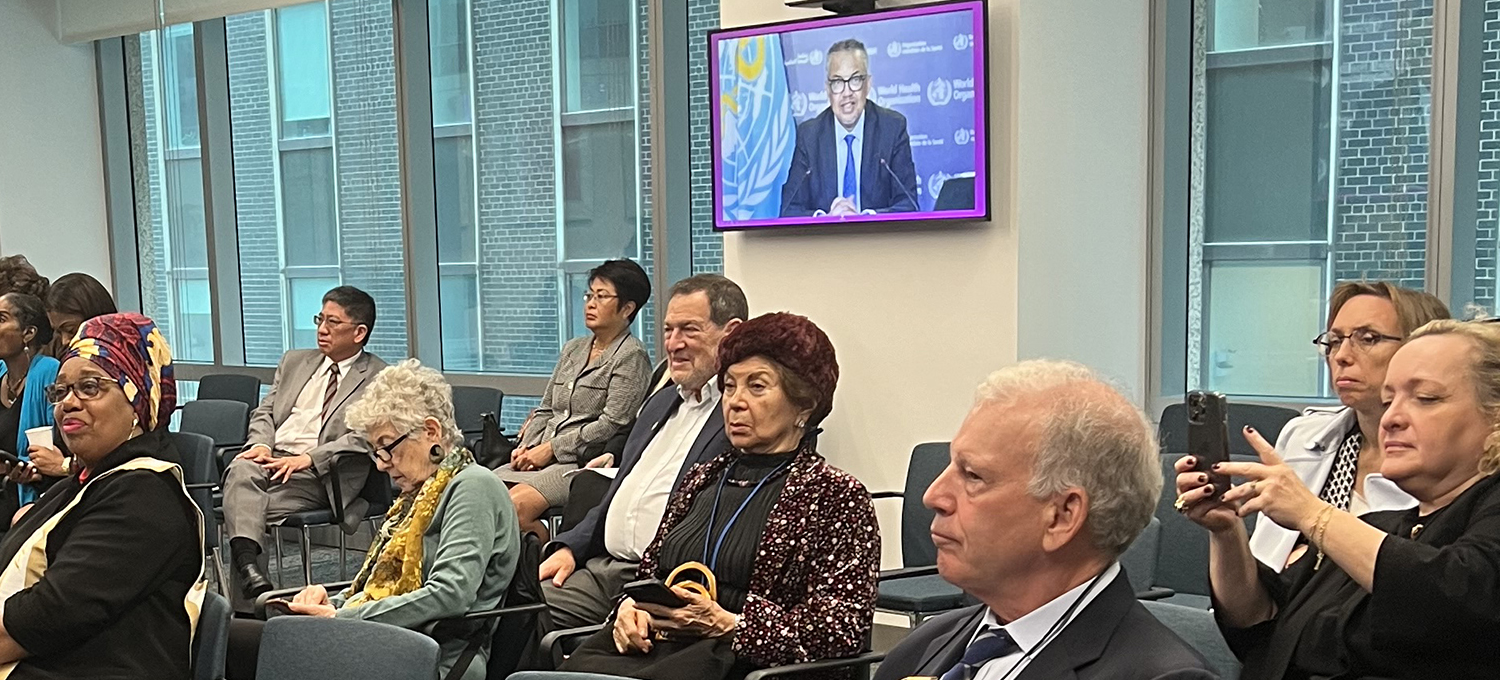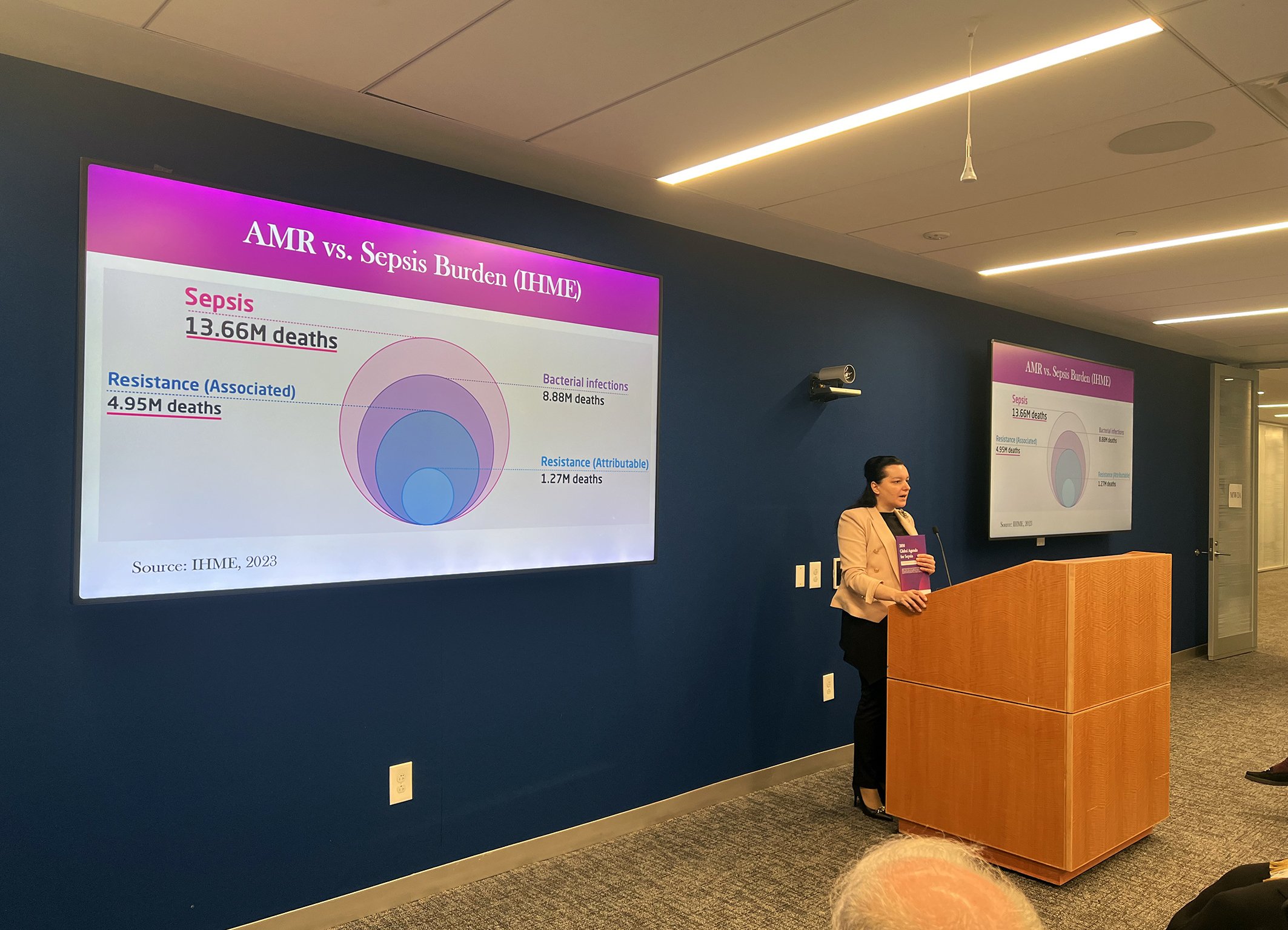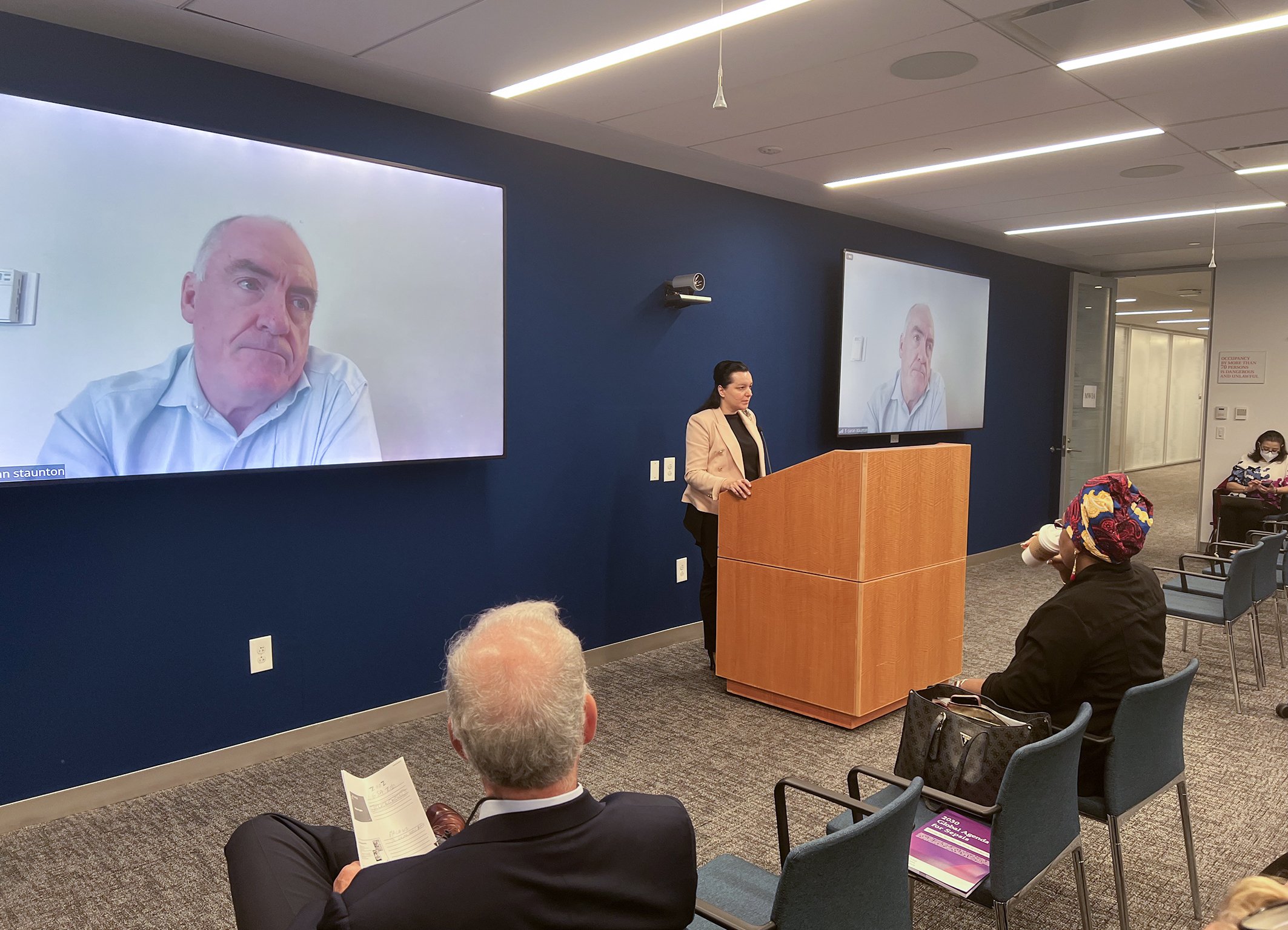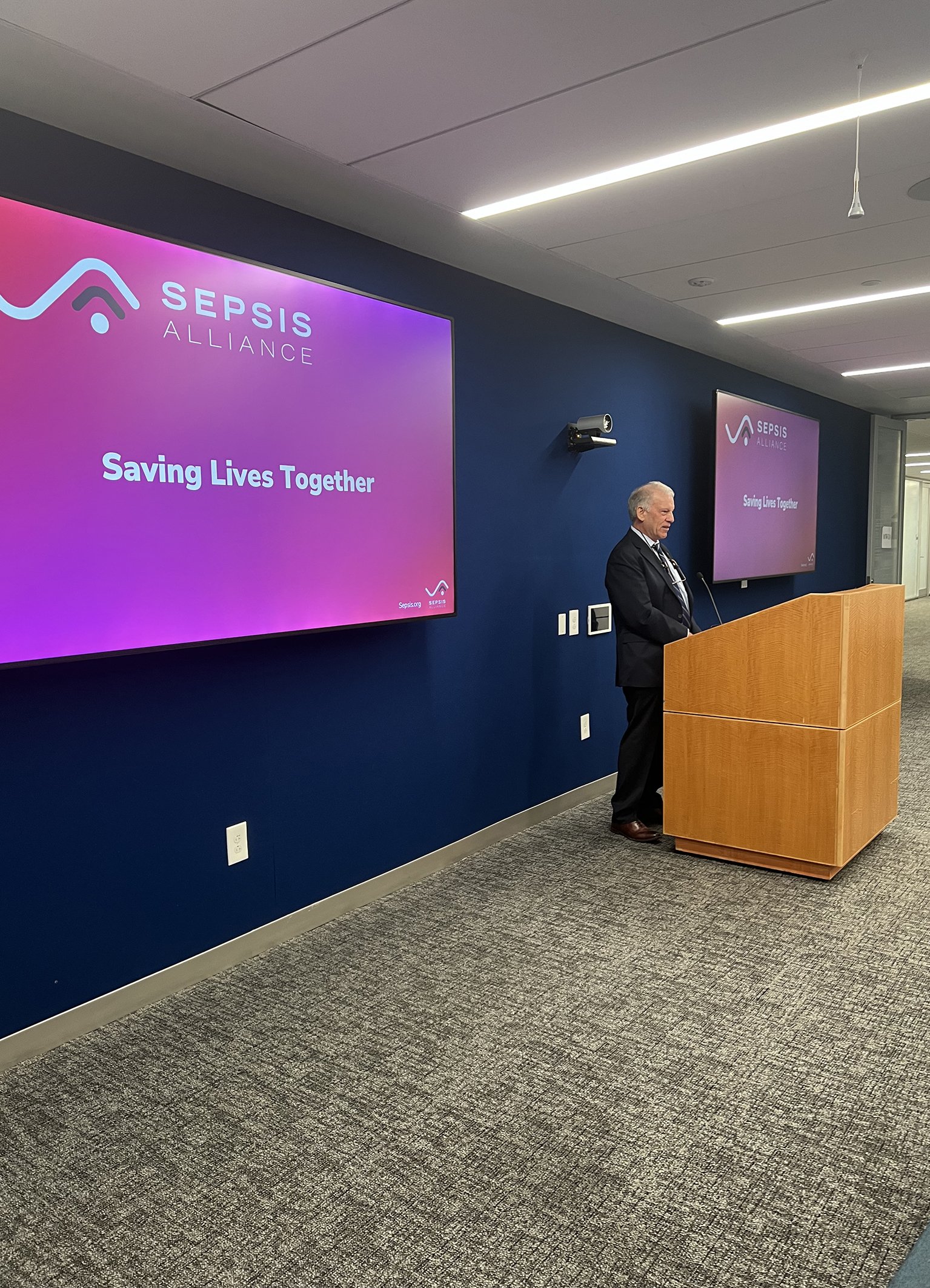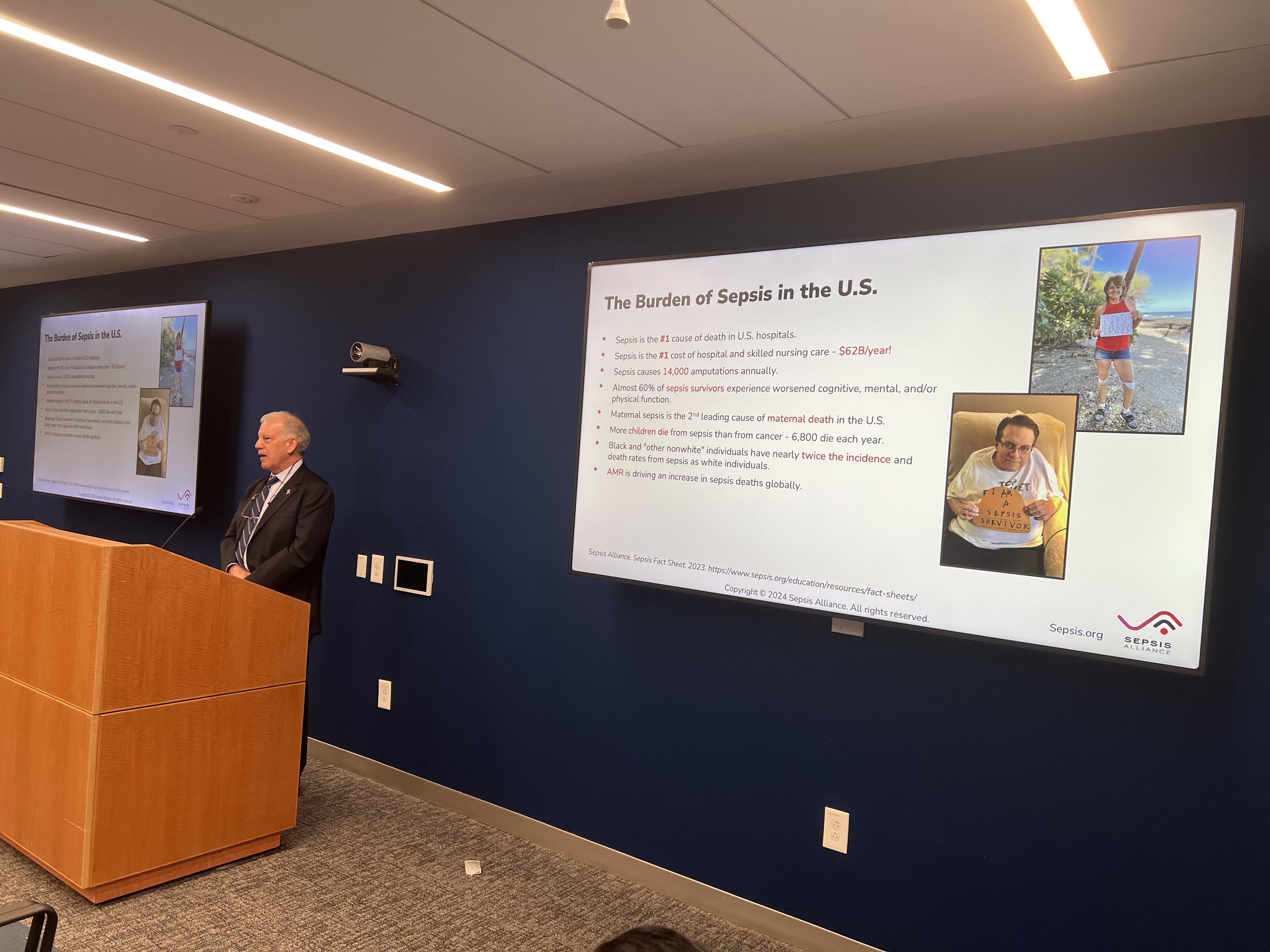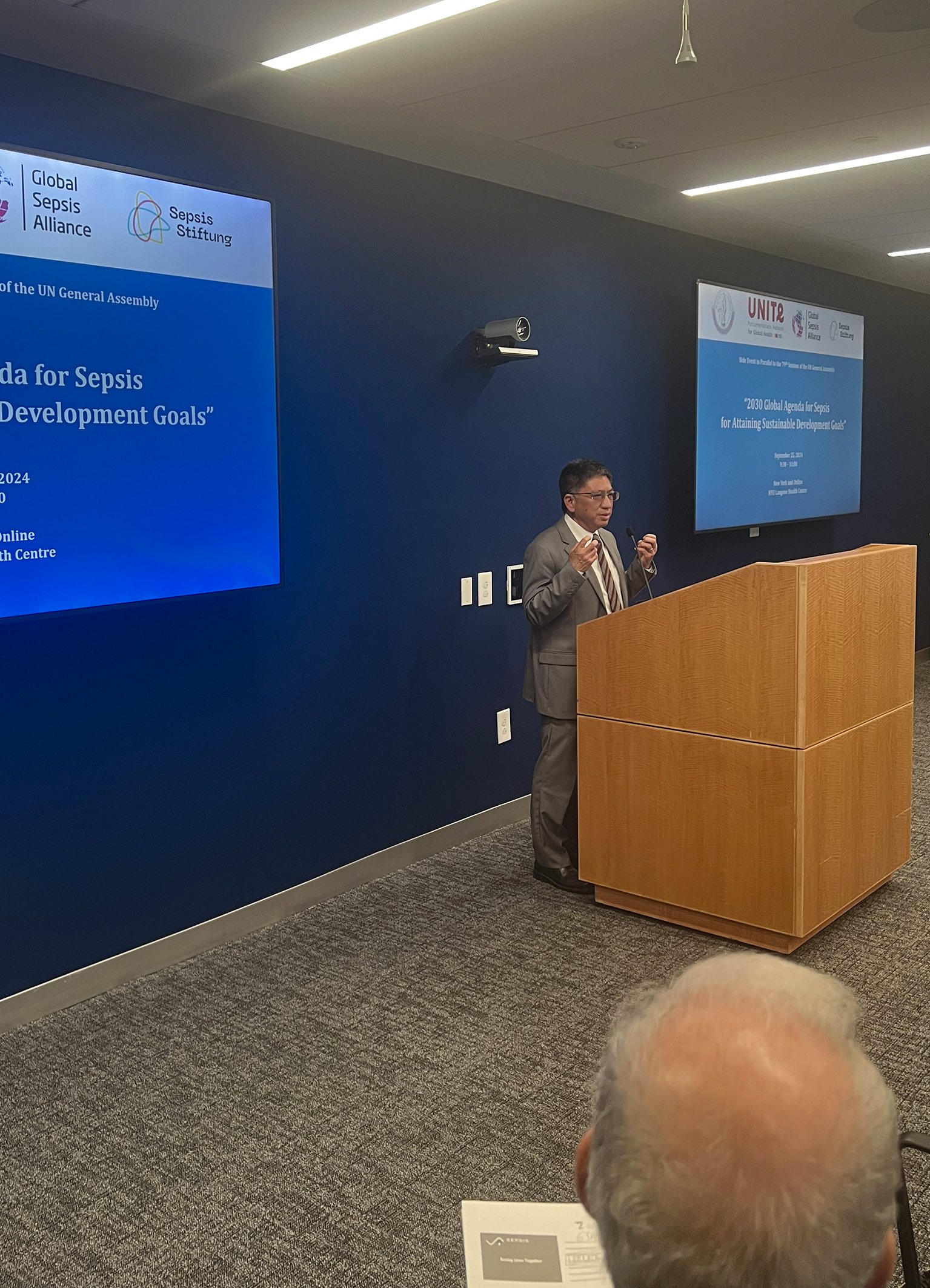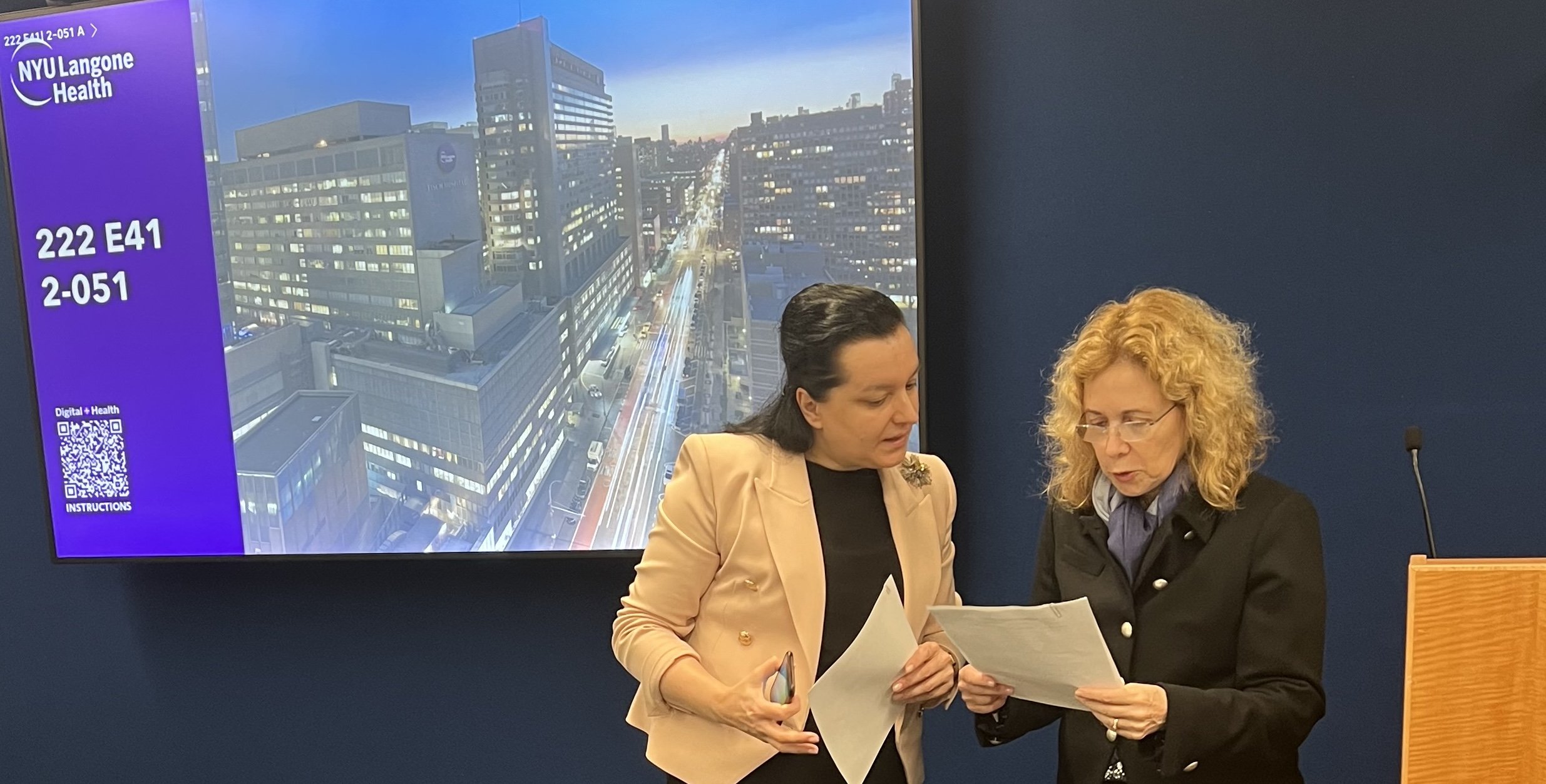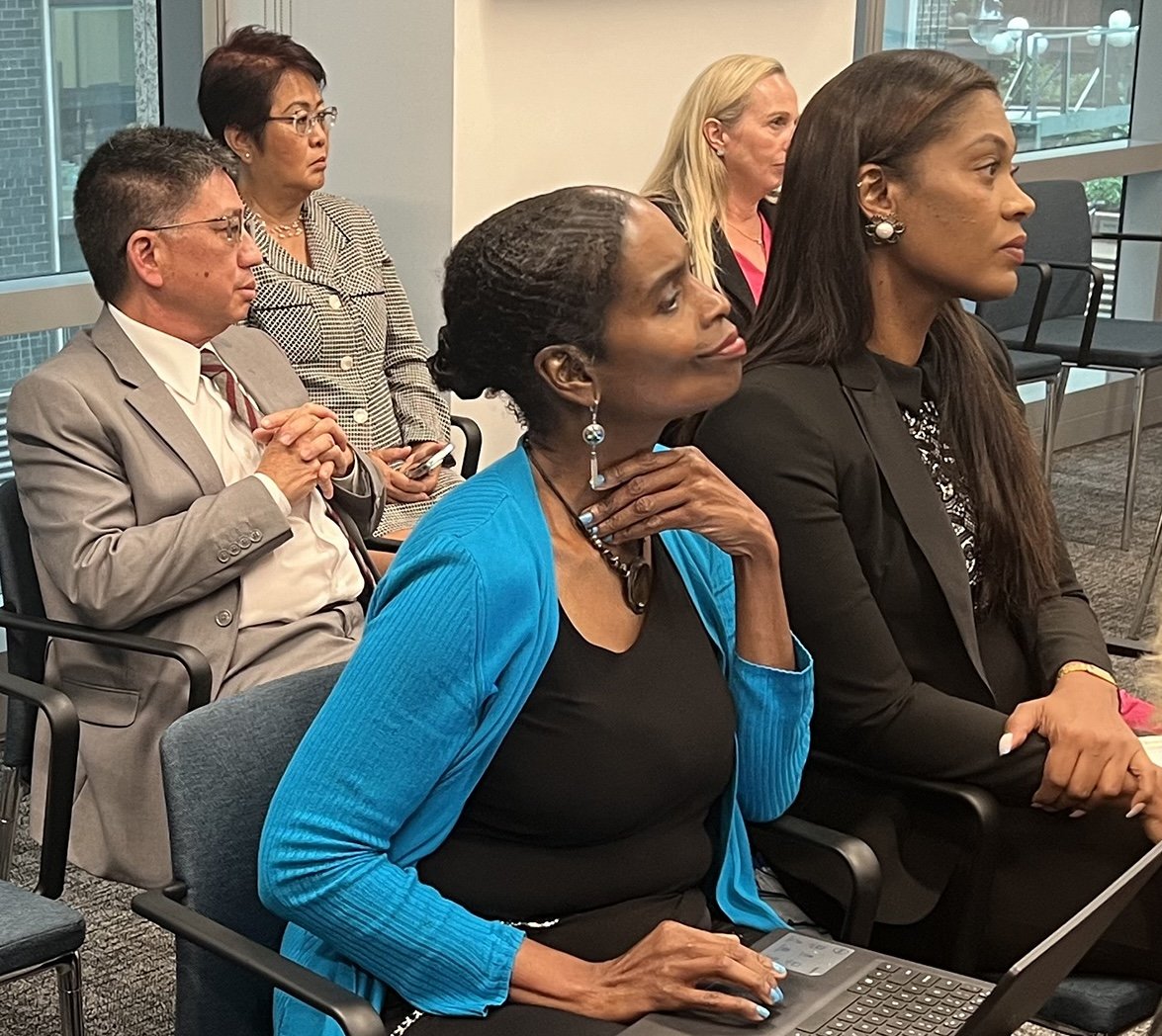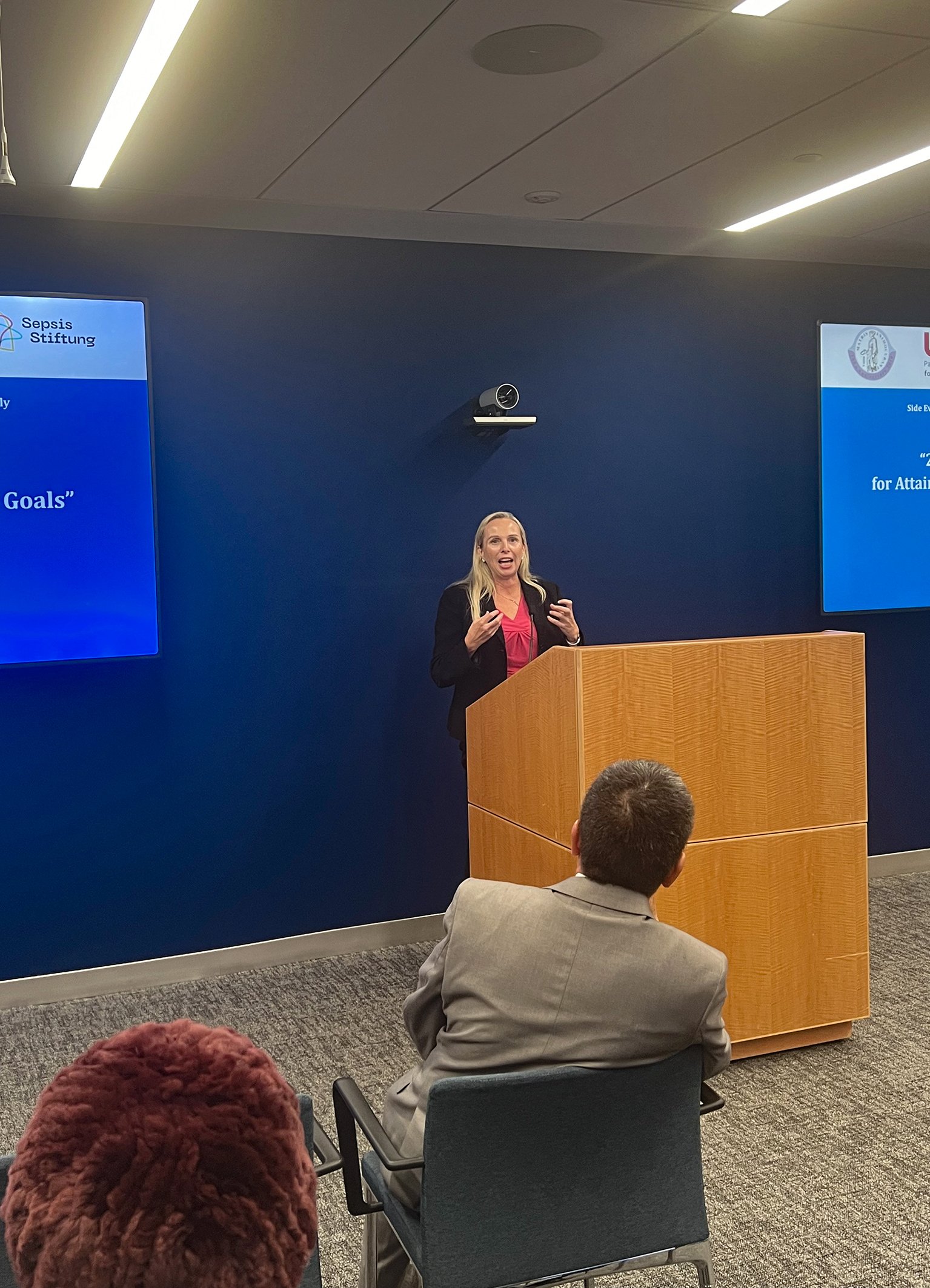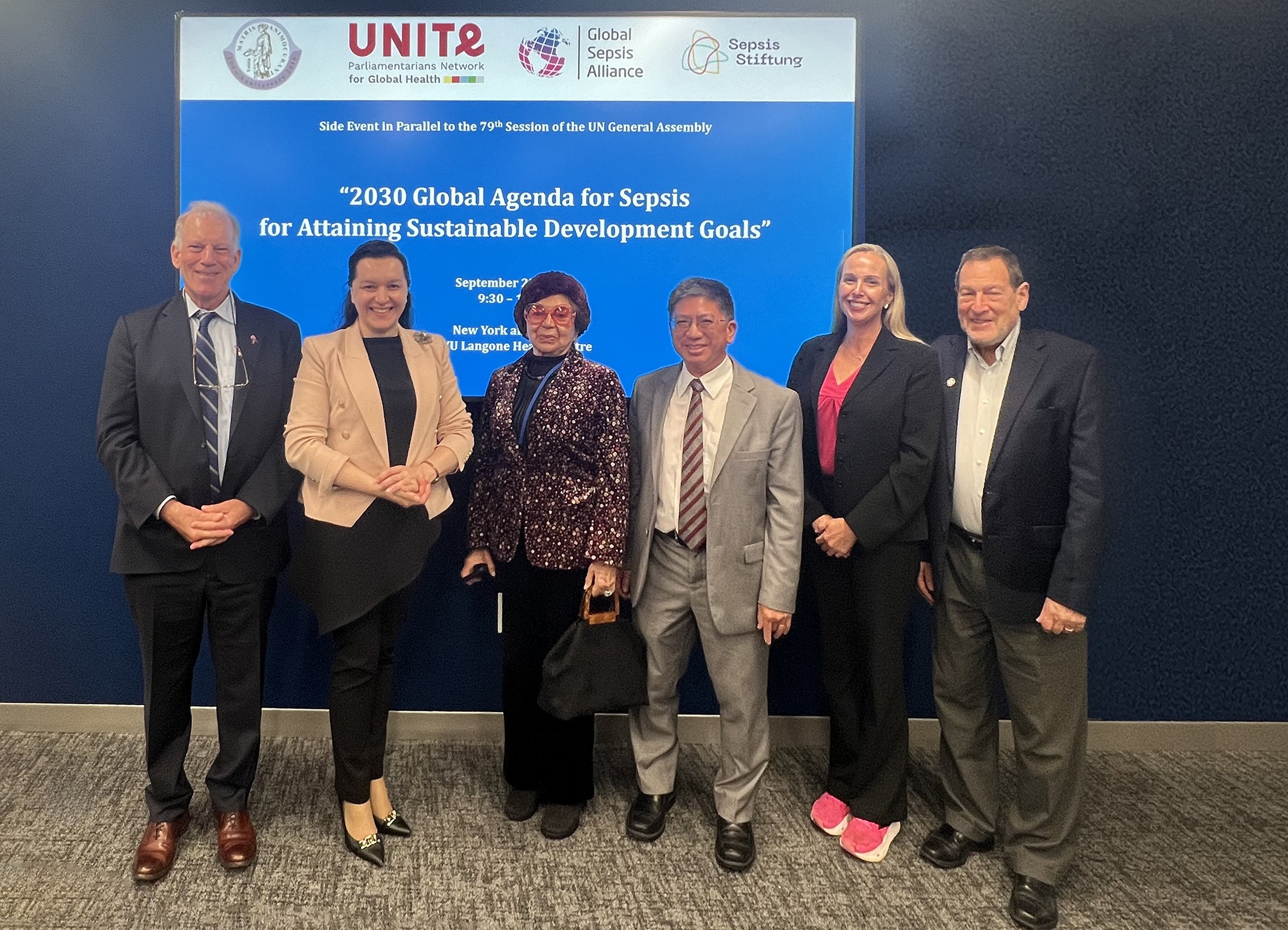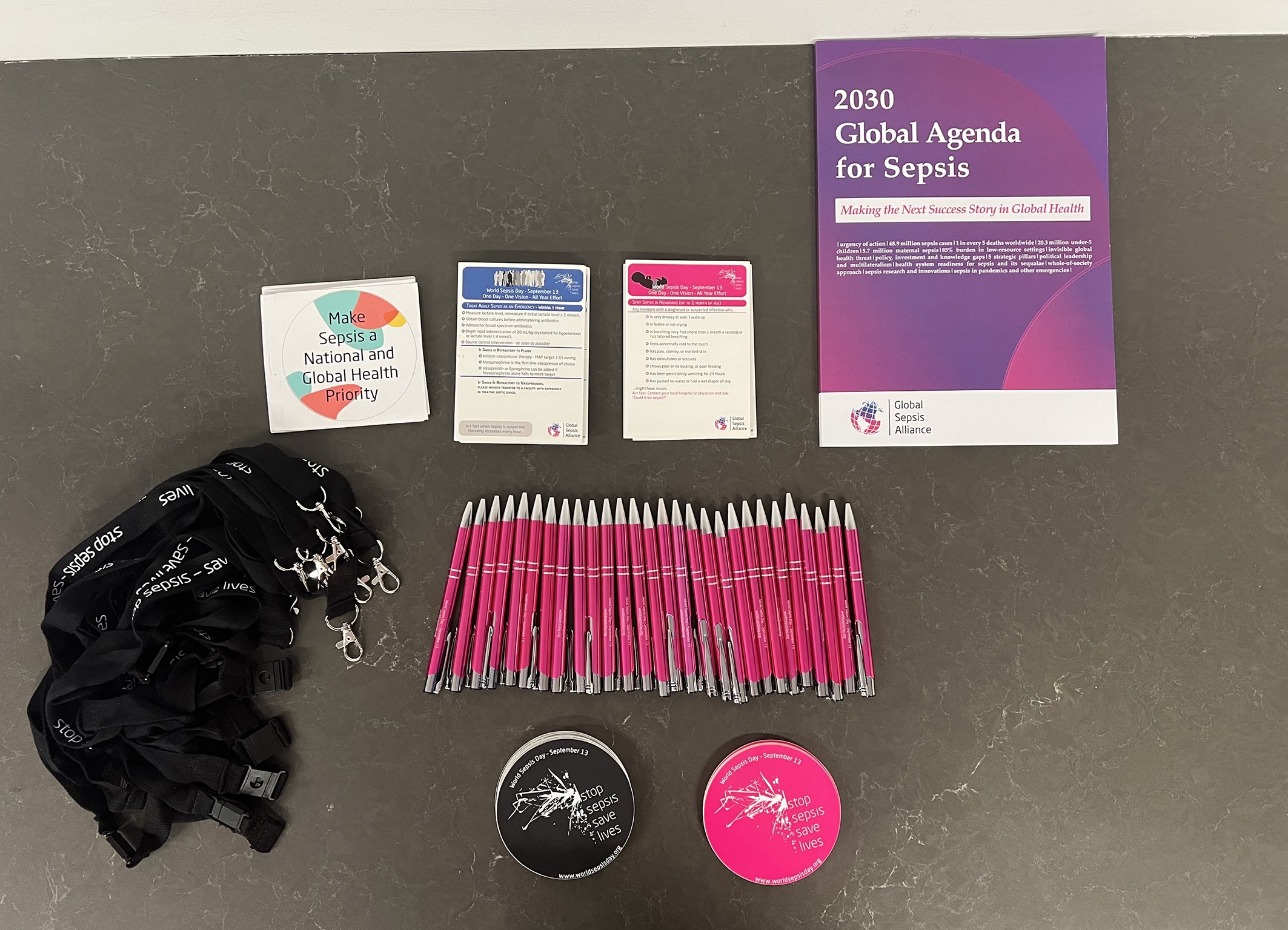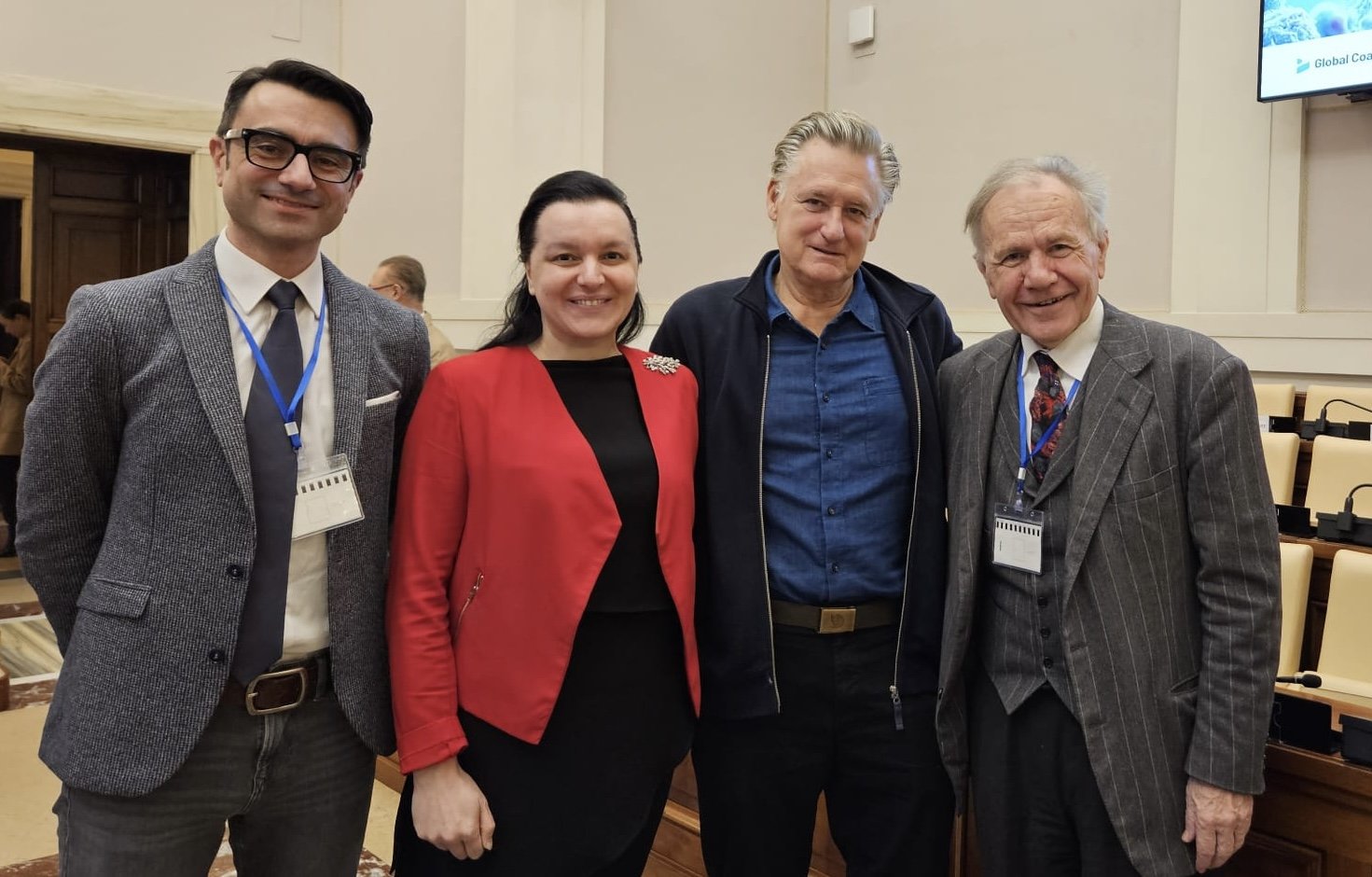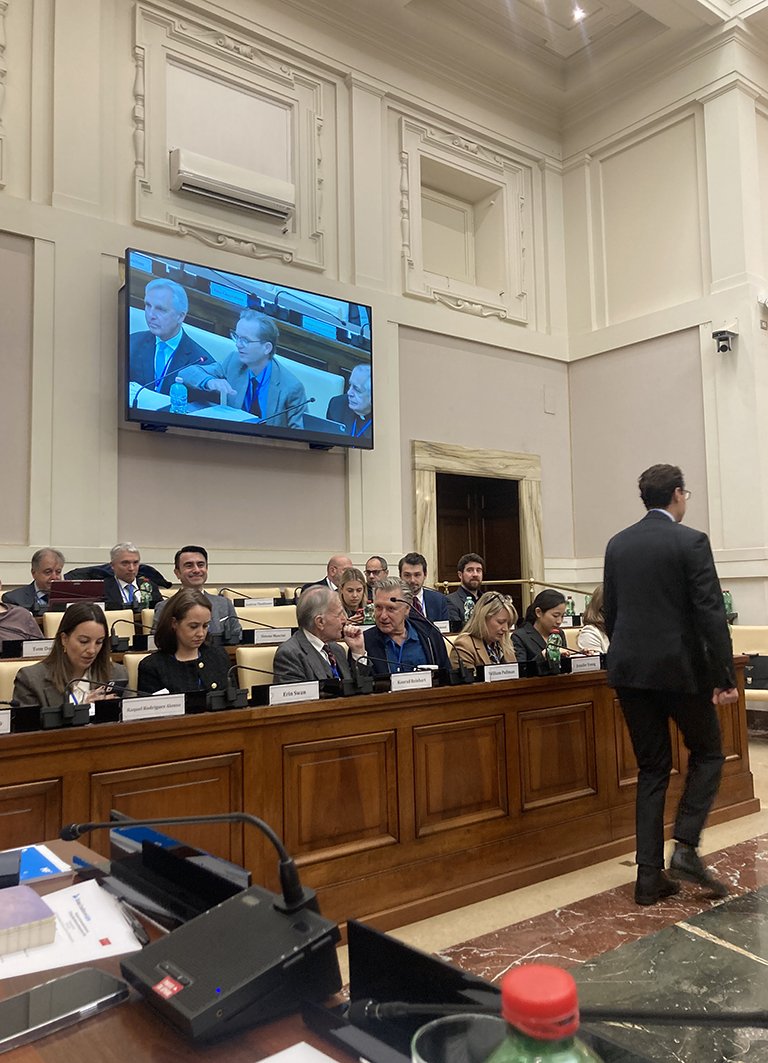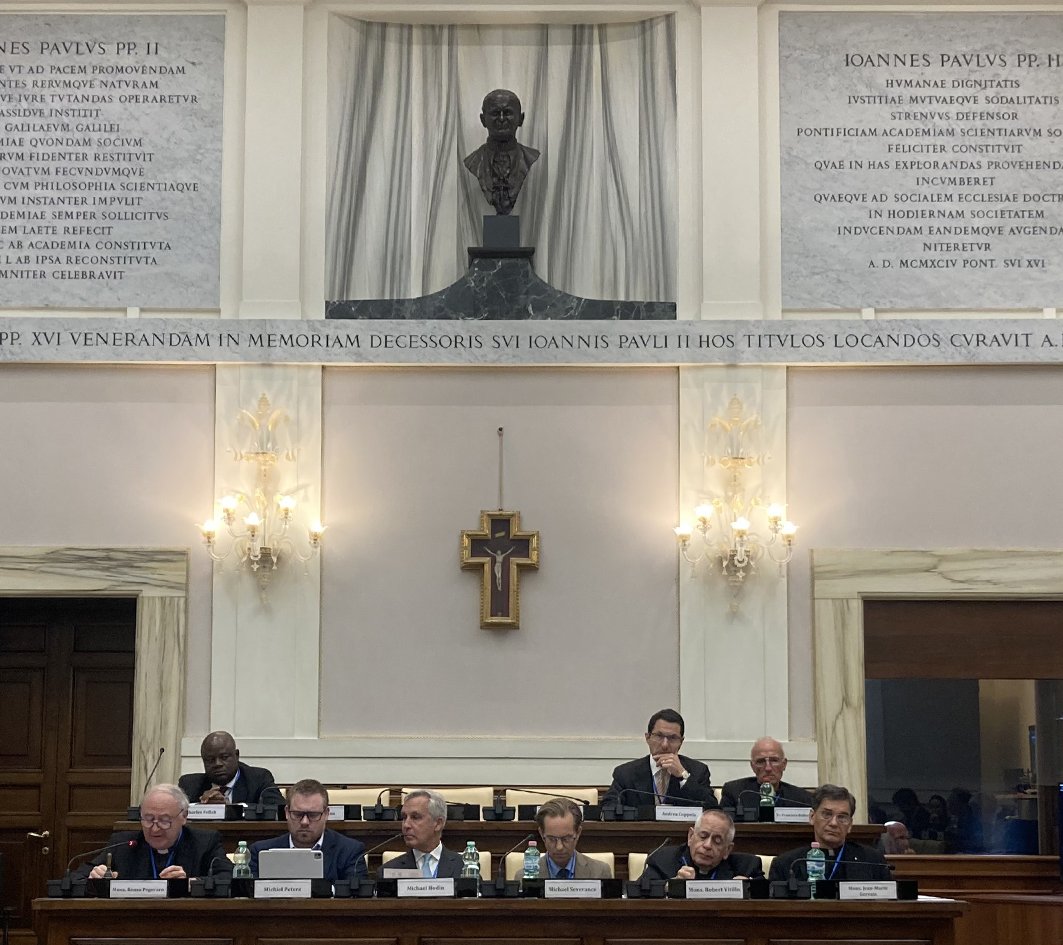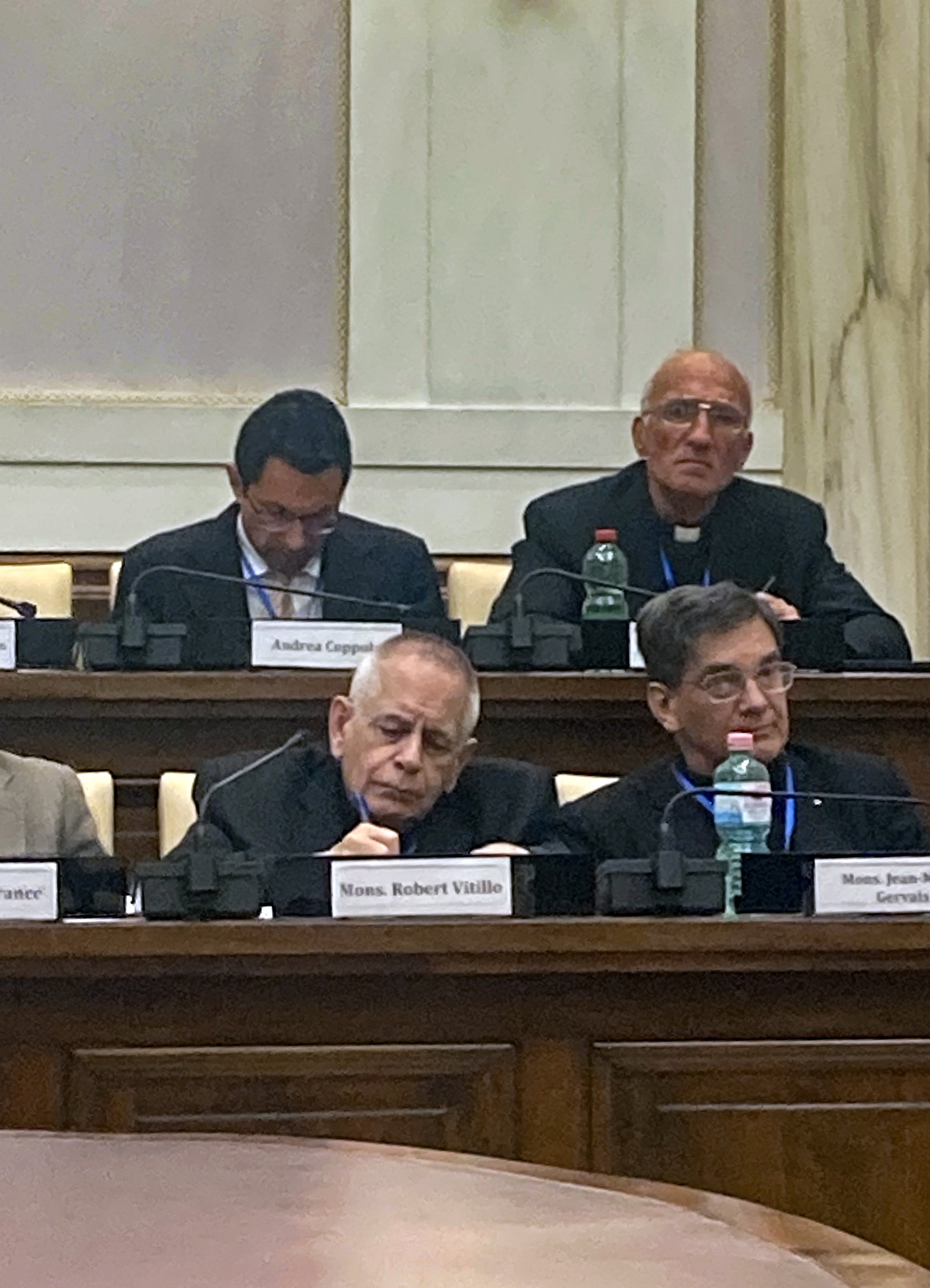As we bid farewell to 2024, we reflect on a transformative year in the global fight against sepsis. From launching groundbreaking initiatives like the Global Sepsis Innovations Platform to hosting record-breaking events such as the 2024 WSC Spotlight, this year has been a testament to the power of collaboration, innovation, and advocacy, cumulating in the launch of the 2030 Global Agenda for Sepsis at the German Bundestag in September.
With the unwavering support of our 120 member organizations, as well as you, our fellow World Sepsis Day Supporters, we’ve reached new heights in raising awareness, fostering research, and driving action to save lives. As we look ahead to 2025, we remain committed to pushing boundaries and creating a world where no one loses their life to sepsis.
Reflecting on 2024
January / February / March
The year started with updated toolkits for 2024, as almost every year does. Shortly thereafter, we shared Ilse’s sepsis story, a story of incredible human strength, resilience, and perseverance. At the 2024 Critical Care Congress in Phoenix, Arizona, the ‘International Consensus Criteria for Pediatric Sepsis and Septic Shock’ were presented. In Gevena, Dr. Mariam Jashi, CEO of the GSA, addressed the 154th Session of the WHO Executive Board to prioritize sepsis in Universal Health Coverage.
In February, we announced the 2024 WSC Spotlight: Unmet Need in Sepsis Diagnosis and Therapy, and Ron Daniels, our Vice President of Communications and Founder and CEO of the UK Sepsis Trust, commented on the updated NICE Guidelines for Sepsis. We also announced the 7th Annual Meeting of the European Sepsis Alliance and shared Kuan Brown’s sepsis story, who unnecessarily died of sepsis at only 18. We also welcomed and contributed to the release of the WHO website on clinical management of sepsis.
On March 8, celebrating International Women’s Day, the Global Sepsis Alliance and the Medical Women’s International Association signed a Memorandum of Understanding. On March 18, we came to you live from Brussels for the 7th Annual Meeting of the ESA – you can rewatch it here should you have missed it, and the report from the event is available here. Also in March, Mariam met Mandeep Dhaliwal and Roy Small of the United Nations Development Programme in New York. Last but not least, our President Tex Kissoon visited the Head Office for strategic discussions, including a video address for you.
April
In April, all eyes turned to the 2024 WSC Spotlight, titled Unmet Need in Sepsis Diagnosis and Therapy.
Throughout 9 distinctive sessions, globally renowned clinicians, researchers, experts, and thought leaders covered the need for early diagnosis and treatment of sepsis in surgical patients, data, AI, and predictive modeling in sepsis, how hypervolemia increases the mortality rate in sepsis, the role of biomarkers, detecting sepsis in ventilated patients, pediatric sepsis, including the new ‘Phoenix Criteria’, as well as personalized approaches to sepsis management.
The congress was held entirely online and participation was free of charge. The talks are still available for free on YouTube and as a podcast on Apple Podcasts – just search for ‘World Sepsis Congress’ in your favorite podcast player. Maybe you’ll make time to catch up on a talk or two during the holidays?
The congress itself was an amazing success yet again – 12,230 people from 185 countries signed up to participate, 65% from low- and middle-income countries. The full report is available here, including a ton of interesting numbers and feedback from attendees.
But that wasn’t all – earlier in April, the US Congress allocated $3 million to the CDC for Sepsis Advocacy in the US, and we celebrated Pediatric Sepsis Week, especially in Australia and the US.
May
May was kicked off by the GSA supporting World Hand Hygiene Day on May 5 – clean healthcare is among the most urgent challenges identified by the United Nations to be addressed by the global community in the next 10 years and is highly relevant in meeting the Sustainable Development Goals (SDGs), as well as fighting infections, sepsis, and, most prominently in the last couple of years, COVID-19.
Next, Mariam met with Helga Fogstad, UNICEF’s Director of Health, and spoke at the UNGA High-Level Meeting on Antimicrobial Resistance in New York.
We also started to release the sessions from the 2024 WSC Spotlight – as mentioned above, they are still available on YouTube and as a podcast on Apple Podcasts, if you aren’t caught up yet.
Later in May, we shared Heike’s sepsis story, who contracted sepsis in the Swiss mountains in 2021 and held a multi-stakeholder dialogue on the 2030 Global Agenda for Sepsis in Geneva.
We closed out May with sepsis survivors Shahrzad Kiavash and Krista Bracke meeting the Director-General of the World Health Organization Dr. Tedros at the WHO Walk the Talk Event in Geneva, as well as Mariam addressing the 77th World Health Assembly to prioritize sepsis.
June / July / August
June kicked off with the first report on sepsis in Belgium and the much-celebrated launch of the Caribbean Sepsis Alliance. We shared the story of a young girl who survived sepsis, and Mariam spoke at the first Global Self-Care Summit in Geneva.
In July, we finally published the aforementioned report on the 2024 WSC Spotlight and shared Vasanth Kumar Gelli’s sepsis story.
We also shared inspirations and ideas for the upcoming World Sepsis Day and looked back at the first event of the Caribbean Sepsis Alliance, focusing on climate change, health, sepsis, and justice.
In August, we shared the invitation to our symposium on the immune system and the ‘Revealing the Burden of Sepsis’ event in Paris in September.
September
Finally, September. Finally, World Sepsis Day again. Across the globe, hundreds of events were organized to raise awareness for sepsis, and we are extremely grateful to everyone who took part. The 2024 WSD Event Poster includes many of these impactful events.
However, September started with the new logo and website of the Caribbean Sepsis Alliance on September 5 and the launch of the WSD Virtual Photo Booth on September 9, before we officially launched the 2030 Global Agenda for Sepsis at the German Parliament on September 10, including a free livestream on YouTube.
On September 11, our symposium – The Immune System: The Double-Edged Sword in the Fight Against Sepsis – jointly organized with the Sepsis Stiftung, took place in Berlin, addressing the relationship between the immune system and sepsis – you can still watch the event on YouTube.
Also on September 11, Senate Majority Leader Chuck Schumer, alongside Senators Susan Collins and Bob Casey, introduced the bipartisan SEPSIS (Securing Enhanced Programs, Systems and Initiatives for Sepsis) Act to the US Senate.
On World Sepsis Day, we shared the video greeting of Dr. Tedros, the written message of Dr. Lauterbach, German Minister of Health, and the media release for the 2024 World Sepsis Day.
Shortly thereafter, we published the full report on the launch of the 2030 Global Agenda for Sepsis and announced our UNGA79 Side Event in New York. Closing out the month, Mariam spoke at the first panel of the UN General Assembly’s High-Level Meeting on AMR in New York on September 26.
October
In October, we joined the Virchow-ESMT Lecture “Health and Sustainability for Thriving Futures” with the 2024 Virchow Prize Laureates, and The Lancet published the sepsis survivor’s call to EU leaders to develop a European Sepsis Plan, as a follow up to the September 9 sepsis patients summit convened in Paris by Sepsis Stronger Together consortium in partnership with the Global Sepsis Alliance and the European Sepsis Alliance.
On October 14, we announced the new GSA Fellowship, followed by the GSA joining WHO’s Acute Care Action Network (ACAN).
On October 16, the GSA led the sepsis dialogue at the UNITE Parliamentarians Global Summit and participated in the World Health Summit in Berlin.
Later that month, we shared Brian Hayes's sepsis story, and Mariam and Simone attended the HERA Civil Society Forum in Brussels, as well as other stakeholders in the region.
November / December
In November, we participated in the Symposium hosted by the Global Coalition on Aging and Acton Institute at the Pontifical Academy of Sciences and joined the Jeddah Ministerial Conference in Jeddah, Saudi Arabia.
We also shared Graham’s Sepsis Story and published the full report – including video – from our UNGA79 side event.
In December, we opened the call for expression of interest to join the new Global Sepsis Innovations Platform (GSIP) and finally completed the 2024 WSD Event Poster, which you can download here.
Last Thursday, we announced the date and title of the 5th World Sepsis Congress – April 8-9, 2025, titled Sepsis Research and Innovations, and just this Monday, we shared the news on the first-ever sepsis event at the White House.
Throughout the year, we engaged in regular meetings with our members, sponsors, partners –including the WHO – and our Board, focusing on strategies to further accelerate the global fight against sepsis. These collaborative discussions have laid the groundwork for exciting initiatives on the horizon – stay tuned for what’s to come!
Anticipating 2025
As we enter 2025, our mission to combat sepsis grows ever stronger. This year will mark a pivotal moment in our journey, as we accelerate efforts to implement the 2030 Global Agenda for Sepsis, driving meaningful action toward prevention, early recognition, and equitable care worldwide.
A key highlight will be the 5th World Sepsis Congress in April, where experts, advocates, and stakeholders will come together to share the latest advancements and insights in sepsis care and innovation.
We will also be in Geneva in May for the World Health Assembly, in New York in September for UNGA80, and at smaller but no less important global health meetings worldwide.
With your continued support, we are confident that 2025 will bring us closer to a future where no one needlessly suffers or dies from sepsis. Let’s move forward together—stronger, more united, and more determined than ever.





















